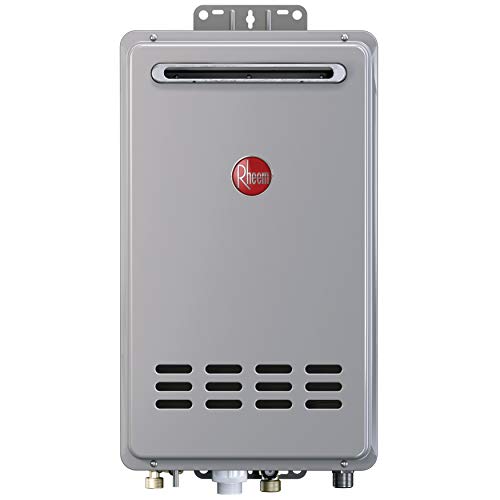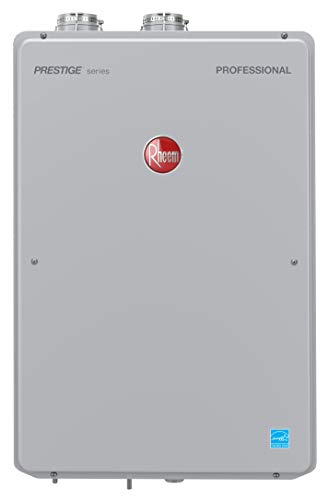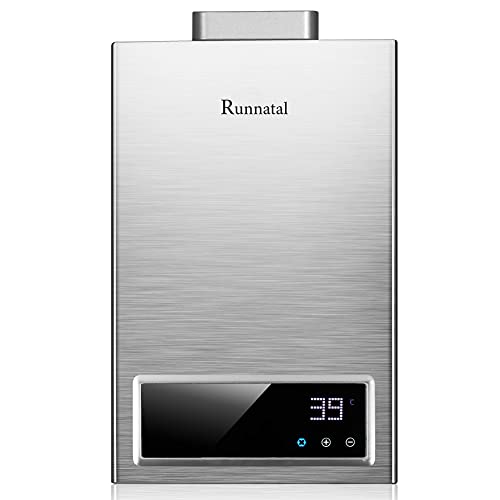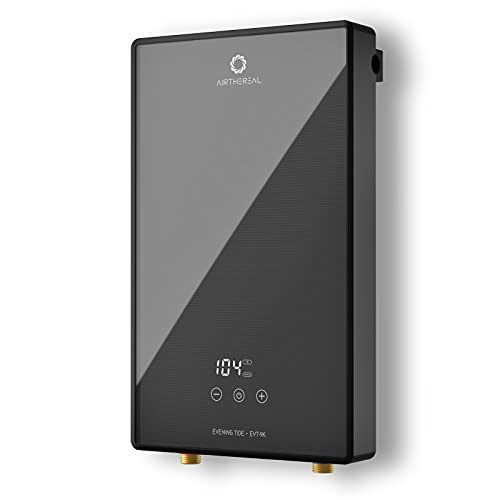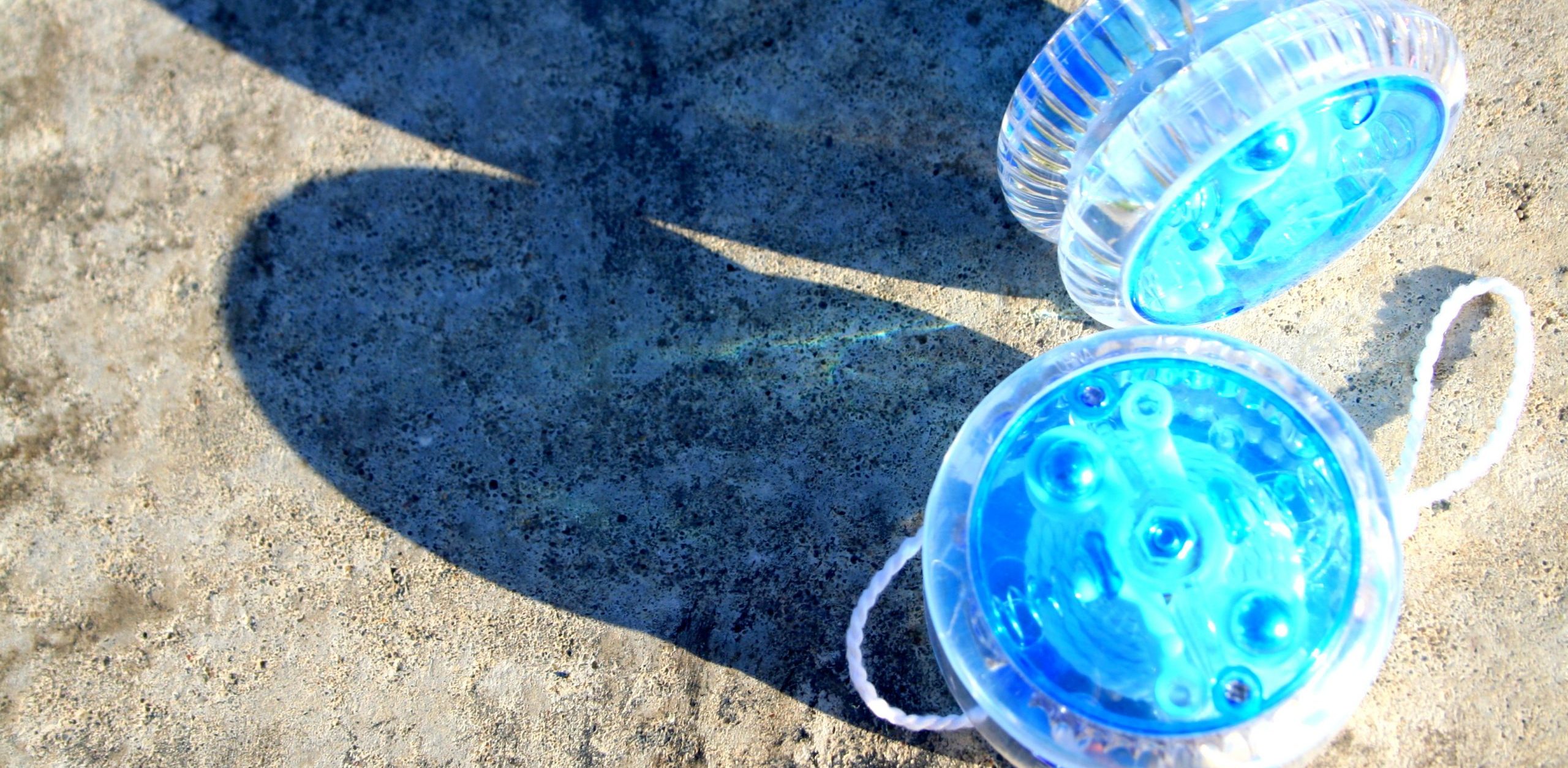Top 18 Best 50-gallon Gas Water Heater Of 2024
Brandon Forder Apr 16, 2024 9:21 AM
For homes with 1-3 bathrooms and families of 3-6 persons, a 50-gallon water heater is typically suggested as the optimal size. The 50-gallon water heater is one of the most common sizes due to the large number of residences that require it.
In theory, picking the proper model should be simple, given the small number of respectable companies producing such products. It may seem like a simple choice, but in reality, there are dozens of models available from each manufacturer.
This article will help you make a more informed choice by analyzing the most important performance factors. Find the best 50-gallon gas water heater for your home with the help of this guide and some real-world examples.

Compare Products
- SCORE9.2
- BrandRinnai
- SCORE9.0
- BrandRinnai
- Prime
- SCORE9.0
- BrandRinnai
- Prime
- SCORE8.6
- BrandRheem
- Prime
- SCORE8.2
- BrandRheem
- Prime
- SCORE8.0
- BrandA. O. Smith
- SCORE8.0
- BrandBradford White
Last update on 2024-04-16 / Affiliate links / Images, Product Titles, and Product Highlights from Amazon Product Advertising API
First-Hour Rating and Recovery Rate
Assuming the tank is already full to a temperature of 135 degrees Fahrenheit, the first-hour rating is the volume of hot water that can be given per hour. According to the U.S. Department of Energy, this is the norm (DOE).
The efficiency of gas-powered versions is typically higher than that of their electrically powered counterparts. An electric vehicle's initial charge might be as low as 60 to 70 gallons, while a gas vehicle's initial charge could be as high as 100 gallons.
How quickly the water heats up when the tank is emptied entirely is the recovery rate. While most will list GPH, some may also list the amount of time it takes to fill the tank (gallons per hour). Yet, it's not always easy to track down such data.
Tank vs. Tankless
There are advantages and disadvantages to both tank and tankless water heaters to consider.
In a nutshell, tanks like the 50-gallon gas water heaters recommended here are more budget-friendly across the board. Water is heated as needed by tankless models. Though they may be more expensive to purchase initially, they often have lower operating costs over time. If two individuals are taking showers at once, for example, they may not have enough hot water.
Materials
A 50 gallon water heater consists of two steel tanks, one inside the other, with high-density foam injected in between for insulation. Typically, the exterior of the tank is painted. The inner tank is made of either stainless steel or carbon steel that has been coated with a ceramic coating (often referred to as "glass-lined"). Both strategies are effective against rusting. Stainless steel's higher price tag reflects its greater longevity.
A metal alloy pipe inside the heater, known as a sacrificial anode, works as a magnet to corrosion, attracting it away from the heater's more delicate internal components. Inspecting this every few years and replacing it if necessary is a crucial part of preventative maintenance. By replacing it, you can keep using the primary unit for a lot longer.
If you live in a region with hard water, it may be worthwhile to invest in a water heater equipped with an anti-scale technology. This quality is unusual, though. You can use either plastic or metal for the drain valve and connectors. Even if current plastics are just as robust as brass, brass is seen as a sign of quality and is regarded to be more durable.
Energy Efficiency
The rate at which the water heats up is affected by many variables, but raw performance numbers are still instructive for making broad comparisons. BTUs are the unit of measurement for gas-powered water heaters (British thermal units). While higher figures are generally desirable, they may have unintended consequences for the economy.
Utilities are the second biggest expense for most people after heating their homes, therefore improving energy efficiency is essential. The NAECA (National Appliance Energy Conservation Act) established the baseline requirements in 2015. Recently, the DOE established a unified energy factor (UEF), and this number is now required on all water heaters. The efficiency of a typical gas water heater is somewhere between 0.60 and 0.70 UEF.
Energy Factor
The energy factor measures how efficiently a water heater uses energy (EF). This is calculated from an average daily fuel consumption rate and the amount of hot water produced. When evaluating the efficiency of a water heater, a greater energy factor is preferable. An EF of.62 or above is recommended for the top 50 gallon water heaters.
Energy Star
An Energy Star-certified 50-gallon water heater is more efficient by roughly 15 percent compared to a conventional type.
Warranty
When shopping for a new water heater, many homeowners make the mistake of not comparing warranties because they believe that they will not have any issues for many years. However, this is a major factor to think about.
In a warranty, a company demonstrates its commitment to standing behind a product it has made. If the warranty is short or has many restrictions, it's reasonable to assume the manufacturer does not expect the heater to last very long.
Water heater warranties might vary from one manufacturer to the next, and even within the same brand and model. Verify the warranty's duration and scope of coverage. Does DIY water heater installation invalidate the manufacturer's warranty? Particularly for tankless systems, it is not unusual for manufacturers to insist on professional installation as a condition of the warranty. However, this information is crucial to have up front.
Work conditions? Does the service warranty include labor costs or just replacement parts? What happens to the warranty if you don't keep up with the recommended maintenance? Investigating the warranty is time well spent because it can help avoid problems in the future.
Flow Rate
The rate of flow is an important factor that cannot be disregarded. How quickly hot water gets to you is a function of the flow rate. This is why prospective buyers of water heaters frequently inquire about available flow rates. A higher rate of flow is often preferable. This implies you can design a system that reliably provides hot water whenever you need it.
Tank-Style or Tankless
Your family needs will dictate whether a traditional storage tank water heater or a more modern tankless model is the better choice. In comparison to its tankless equivalents, tank-style water heaters are less expensive to buy and operate, easier to fix, and less expensive to replace. Tankless models, however, are more compact and less resource intensive. In addition, they are built to last for 20 years or more with regular upkeep.
How many showers can you get out of a 50-gallon water heater?
How much water you use in a shower is directly proportional to how long you spend under the water's spray. A 50-gallon water heater will often provide enough hot water for two or three 8-minute showers before running out.
How long does it take for a 50-gallon gas water heater to heat up?
Whether or not a specific water temperature is needed will depend on how well the system performs. A 50-gallon gas water heater should take 45 minutes to an hour to heat the water, assuming a standard water supply of 45 to 55 degrees Fahrenheit and an output requirement of 140 degrees.
Is 50 Gallons Right for Me?
The number of people using hot water at once is a major consideration when sizing a water heating system for a home.
Generally speaking, you should be able to use various water sources simultaneously if your hot water heater is enough. You should be able to do multiple tasks at once, like showering and doing laundry or loading the dishwasher.
How Much Does A 50 Gallon Water Heater Cost?
Depending on a number of variables, the price of a 50-gallon heater might be anywhere from $795 to $2,800. When comparing prices for 50-gallon water heaters, it's important to take into account not just the price of the heater itself, but also the cost of installation and labor.
It is impossible to provide an accurate estimate of expenses without first having the installer visit the property where the water heater will be installed.
If you need to remove your current gas water heater and replace it with a new unit, the installation process may differ depending on the new unit you purchase. If there are additional steps that must be taken before the item can be installed, labor costs will increase.
Your best bet is to consult a licensed plumber about the state of your pipes and fixtures to find out whether there will be any additional expenses beyond the water heater itself.
To meet the needs of everyone in the house, there must be a constant supply of hot water. A high-quality 50-gallon gas water heater is all you need to make this a reality. If you're looking for an affordable, reliable alternative to electric heaters, go no further than this.
You may make a more informed decision about your next purchase of a gas hot water heater 50 gallon or a propane water heater 50 gallons in capacity if you are familiar with the features, benefits, and drawbacks of the most reputable manufacturers now on the market.
Having access to hot water throughout the clock is insufficient. You would be a happier and more happy customer with some extra incentives. Invest in a high-quality 50-gallon gas water heater right now.


